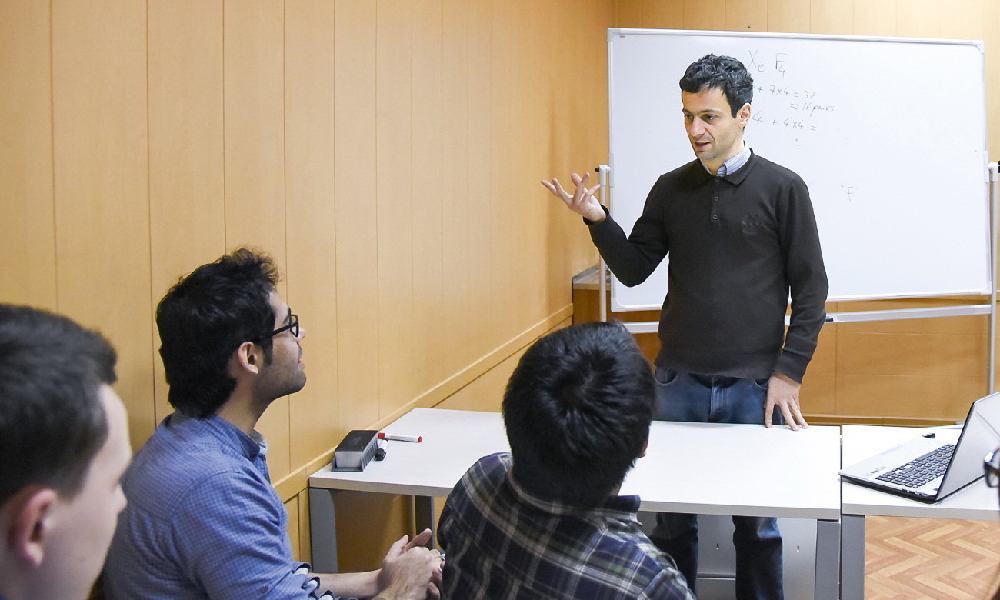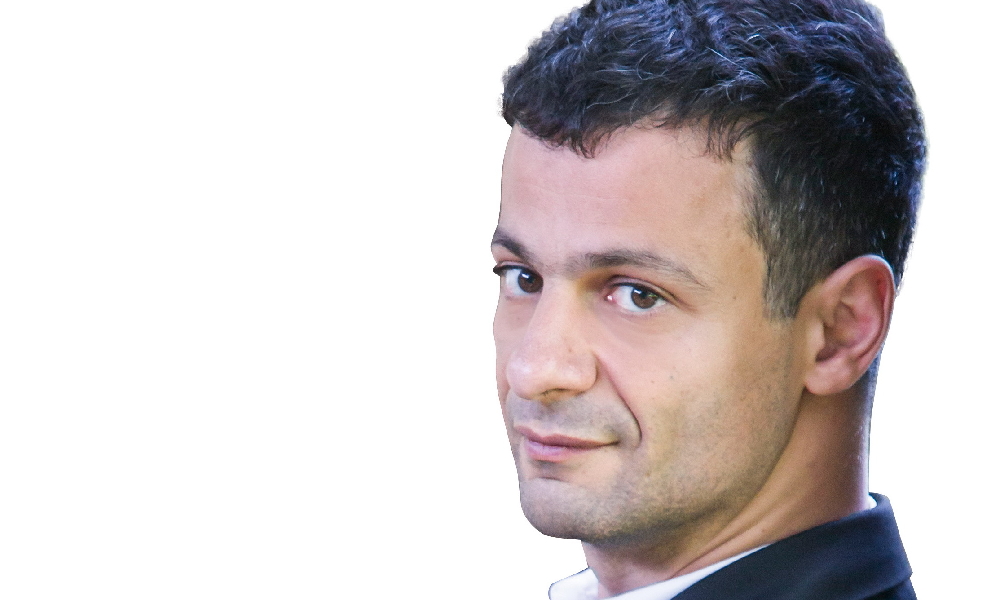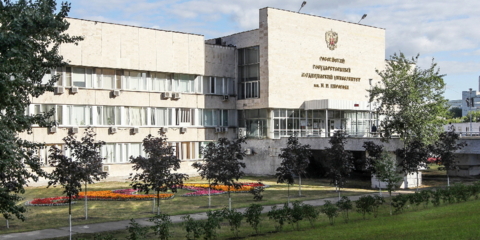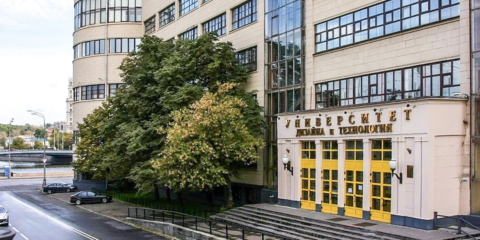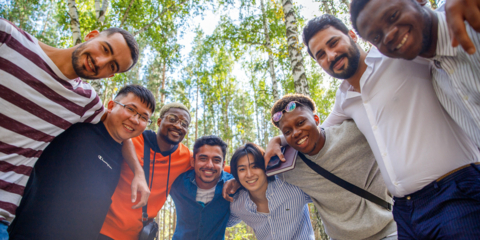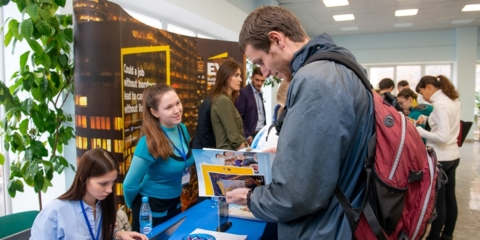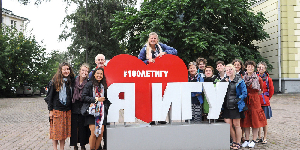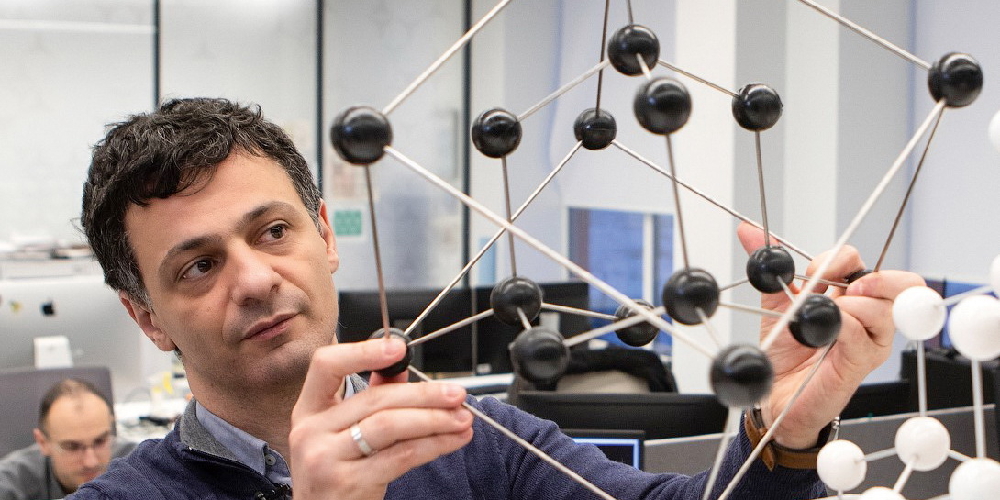
Tips For PhD Students
- It's highly important that you choose your teachers properly while pursuing your PhD degree. Your research supervisor will determine the best part of your successes or failures. You should know which area of science you want to devote your life to, and the more exactly you know that, the better. And choose the best scientist in this area as your research supervisor.
- Don't choose a study destination because of the city (or country) you would like to live in. That's stupid. Your PhD degree, like your life, is given once.
- Don't miss the forest for the trees, try to achieve the maximum result. Develop your talents, achieve outstanding results, and try to become a first-rate specialist while pursuing your PhD degree. The lion's share of your success will depend on that.
PhD degree is a milestone of the scientist's self-development. I think that a PhD degree in Russia shouldn't be one of the educational stages. To my mind, PhD students must not attend lectures and take exams. They must not be distracted from science. They must focus on their research because it must take three years (I believe this period to be an optimal one for earning a PhD degree) for yesterday's student to turn into tomorrow's leader of global science.
Must-Read Books And Must-Watch Videos
– In Russia, we have a lot of good video content, popular science books for all ages. There is ThoiSoi, a Russian-language YouTube blog with high-quality content. It's a spectacular chemistry show with first-rate experiments and relevant comments. There is a wonderful video on chemistry in English by outstanding British professor Martyn Poliakoff.
When it comes to literature, I'd advise you to go beyond reading only chemistry books and study allied disciplines such as physics and biology as well. For example, there is a book under the title The Origins of Everything: From the Big Bang to the advent of human civilization by David Bercovici. Its subject matter has not much to do with chemistry, but it is in contact with chemistry at almost every step. I'd recommend this book to any person who wants to make progress.
Russian and foreign specialists issue plenty of exceptional books in Russia now. Among them are Tamara Eidelman, a history teacher, radio host, blogger, Yuri Nechiporenko, an amazing person, biophysicist, writer, art critic, cultural studies scholar, and many others.
Be guided by your interests and look for good mental food. What you will read is important here. If you read rubbish, your brain will get used to it and won't be able to perceive high-quality information. The human brain gets used to the food you give to it. So choose really useful science and popular science books. We have more than enough such books now.
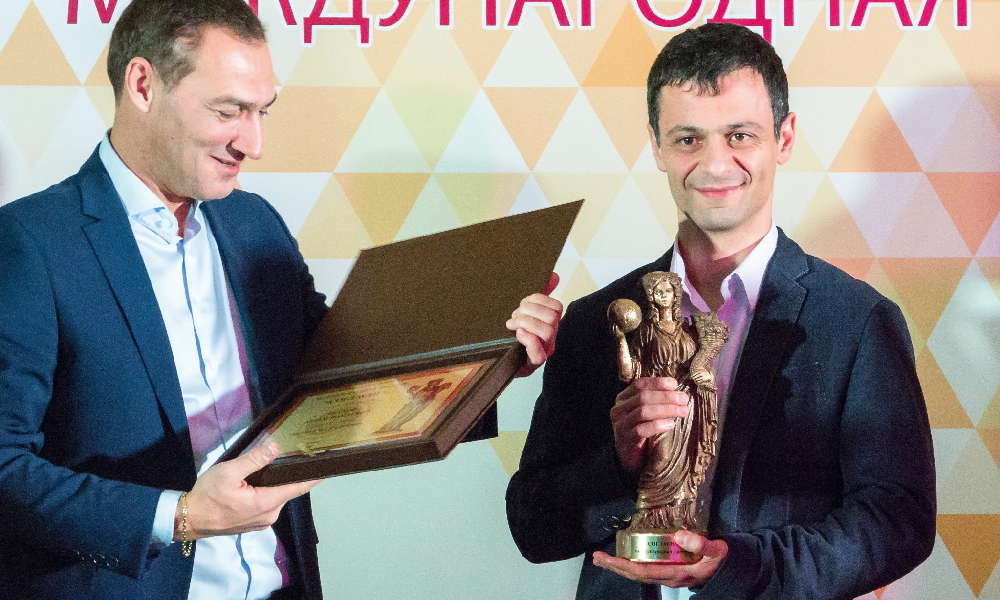
skoltech.ru
Oganov became the youngest laureate of the Soglasie international award granted by the Union of Armenians of Russia supported by the Russian Government
– All people are different, and scientists are different as well. But the profession imposes some basic requirements.
Scientists Must Be Honest. And it's not about honesty in everyday life or politics. Unfortunately, the world is not as simple as we would like it to be sometimes. There are great scientists, who are blatantly dishonest in everyday life, but they are still great scientists. But such people are not dishonest in their profession — they don't wangle and fudge. Dishonesty is condemnation for a scientist. I've met people who try to please the person they are talking to in the best possible way while answering their questions. Such people have no business being scientists. It's a disqualification. Scientists must tell the truth — they shouldn't try to fudge the result to fit their theory. They should fairly admit that there's something wrong with the theory if it doesn't work and is not consistent with the experiment.
Scientists Must Be Curious. There is no shame in not knowing something. The shame is in not being willing to learn.
They must feel great respect for a question mark. Scientists are not afraid to admit that they don't know something.
Scientists Must Be Active. People often sit and wait for inspiration. Such people will wait for it all their life, but that's a fat chance. Because inspiration only comes to hard workers.
People whose brain is loaded with scientific problems can generate many other ideas concurrently. While thinking over one task, people are doing some others, often more important, at the same time. People who just sit and wait for the Muse are lazy. They will hardly make any scientific discoveries.
Thus, scientists should be active, hard-working, constantly improve themselves, do various tasks. By loading your brain, you train it. Only then will it be able to spring surprises on you. And only then will inspiration come to you. Inspiration doesn't come to lazybones.
Debunking Myths
Unfortunately, the myths disseminated by some popular editions do immense harm to beginning scientists. For example, they write that Einstein used to get Cs and Ds, but then was suddenly inspired and made a remarkable discovery. It's a lie. I lived in Switzerland, visited Einstein House, and saw his school diaries. He got As in almost all subjects, including mathematics and physics. He only had Cs in two or three foreign languages. He was a person of keen intellect and excelled in his studies, but he had some problems with foreign languages (which is proved by his speeches in English).
Here's another myth. Einstein was believed to look at the ceiling in some shed all day long and imagined that he was flying on the photon, which helped him discover the theory of relativity. But that's also not true — he worked hard for a long time discussing this theory with the most intelligent people who were young and with no claim to fame. To discover the theory of general relativity, he hit the books and studied the things that were new to him, a hugely complex area of mathematics. He studied it so well that he managed to make a personal contribution to it!
Einstein wrote profound and diverse works that are of paramount importance to science. For example, he published five papers in 1905, all of which turned physics upside down. And that was a feat for a young scientist. He has done an astounding amount of work that required great effort. Have you ever tried to write five papers alone in a year? That's immense work. Einstein was a busy bee.
10.09.2021

